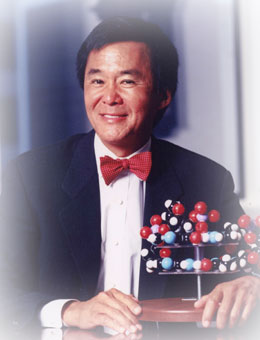|
ASIAN AMERICAN PERSONALITIES |
CONTACT US
|
ADVERTISING INFO
© 1996-2013 Asian Media Group Inc
No part of the contents of this site may be reproduced without prior written permission.
GOLDSEA | ASIAMS.NET | ASIAN AMERICAN PERSONALITIES
Titan of
Tech Trials
PAGE 6 OF 7
MC: I very much enjoy jury trials. The best part of practicing law is trying cases.

GS: Would you advise aspiring trial lawyers to focus on the personalities of the players?
MC: I wouldn't say focus on the personalities. You have a set of facts and facts win trials in the end. But you can help a decisionmaker whether it's a judge or jury decide what's right by the presentation. Frequently where there are disputes on the facts, those disputes are often contests of credibility. Not always, but they often are. Putting together a case for trial is often putting together a case that is credible and believable, consistent with the facts, and be forceful.
GS: It seems you essentially started Irell's intellectual property/patent practice and made it a big player in the tech sector.
MC: I was a little earlier than some other people but this really has been a group effort, and not just our lawyers here it includes our staff, our legal assitants, many many people.
GS: I understand it's a big firm and it was a big firm when you got there too, but wouldn't it be accurate to say that you started the area that led to Irell & Manella becoming a big player in Silicon Valley litigation?
MC: I would say that I was one of many who helped the process. I've just been very lucky to work with a great group of people.
GS: How many lawyers has Irell & Manella grown to?
MC: We're about 220 plus lawyers now.
GS: As you know there's been a big shakeout among the big firms, especially those firms that had a lot of involvement with Silicon Valley. Irell & Manella is one of the ones that continue to do very well.
MC: Very well. Our profits in each of the last several years is better and better, despite the shakeout in many other firms.
GS: You also seem to be at the top of the list in terms of partner profits and compensation
MC: We're doing very well, we're pleased most of all with having very happy clients but it happens that we're also doing well financially. We're happy about that but I think our greater focus is on the quality of our work.
CONTINUED BELOW
GS: We would imagine your verdicts played a significant part in the profits?
MC: As a general rule and policy I and the firm don't discuss what our arrangements are with particular clients and particular matters. But obviously if you're doing well for your clients and you're doing great services and achieving wonderful results, it helps one not only on a short-term basis but on a longterm basis as well.
GS: As a general policy, do you take some tech litigation matters on contingency?
MC: Yes.
GS: Do you do only litigation?
MC: I love litigation, but there is a fair amount of activity I get involved with which are planning or helping with business transactions. A way to think about this is to go back to the 1900s, 1920s, 1940s. American industry consisted of smokestack companies, steel companies, automobile companies, railroads. But if you think about some of the most valuable companies today, their biggest assets are intellectual property. Microsoft is a company that owns a lot of software. That's intellectual property basically, copyrights, patents and others. You can take a company like Coca Cola. Today it basically sells colored water with bubbles in it and it's a trademark. You could put your name on a bottle of colored water that tasted pretty good and would not sell very much of it. Nor could I.
So intellectual property is extraordinarily valuable. So what happens when one company is acquiring another, or venture capitalists are making investments? They're not making investments in steel companies even though they still exist. They're making investments in new technology companies. They're investing in human capital, the intelligence of the people and the intellectual property that has been created. That's why I get involved in things that are not just litigation.
GS: On litigation matters, do you only do trial work, or do you also get involved in the preliminary stages?
MC: It varies from matter to matter, but in general I'm involved in every level, one way or another. I actually enjoy getting my fingernails dirty all along the way. You know, sometimes late at night I'm actually stapling things, putting things together.
GS: Even now?
MC: That's not my favorite activity but there are times I am doing that, running the copier. But on most matters at the outset I try to think through what the broad strategic plan is and all along the way as discovery is occurring, people are taking depositioins and the like, you're fine tuning the process or you're changing your strategy. It's evolving. You need to be close to it to know what changes need to be made. A small factual discovery may end up having enormous importance.
PAGE 7
| "You know, sometimes late at night I'm actually stapling things, putting things together." |
